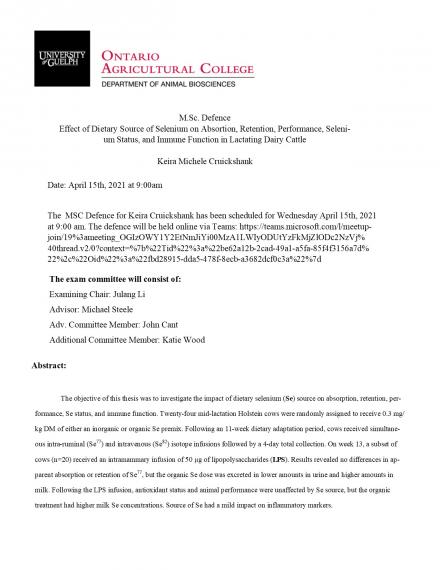Micrsoft Teams: https://teams.microsoft.com/l/meetup-join/19%3ameeting_OGIzOWY1Y2EtNmJiYi00MzA1LWIyODUtYzFkMjZlODc2NzVj%40thread.v2/0?context=%7b%22Tid%22%3a%22be62a12b-2cad-49a1-a5fa-85f4f3156a7d%22%2c%22Oid%22%3a%22fbd28915-dda5-478f-8ecb-a3682dcf0c3a%22%7d

The objective of this thesis was to investigate the impact of dietary selenium (Se) source on absorption, retention, per-formance, Se status, and immune function. Twenty-four mid-lactation Holstein cows were randomly assigned to receive 0.3 mg/kg DM of either an inorganic or organic Se premix. Following an 11-week dietary adaptation period, cows received simultane-ous intra-ruminal (Se77) and intravenous (Se82) isotope infusions followed by a 4-day total collection. On week 13, a subset of cows (n=20) received an intramammary infusion of 50 μg of lipopolysaccharides (LPS). Results revealed no differences in ap-parent absorption or retention of Se77, but the organic Se dose was excreted in lower amounts in urine and higher amounts in milk. Following the LPS infusion, antioxidant status and animal performance were unaffected by Se source, but the organic treatment had higher milk Se concentrations. Source of Se had a mild impact on inflammatory markers.

